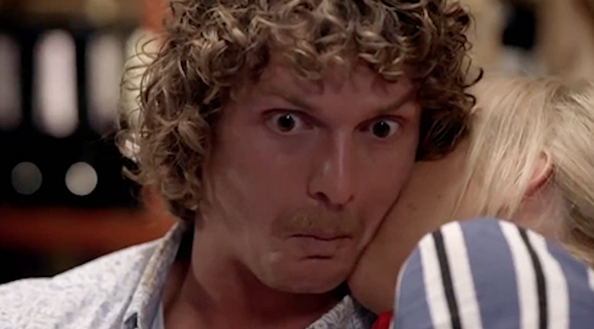The Honey Badger brings all the boys to the yard, and marketers should pay attention
Ten’s decision to cast Nick ‘The Honey Badger’ Cummins as its latest bachelor was an exercise in the power of gender. Marketers should be keeping a close eye on what it all means, explains Bec Brideson.
Something very interesting is happening to The Bachelor’s ratings. The Honey Badger is putting the ‘balls’ in eyeballs – attracting 76,000 new fans to the show, only 1,000 of whom are women. The Bachelor ratings success demonstrates their producers have either wittingly or unwittingly – cracked a code for attracting blokes to a ‘romance’ show. And there is a lesson in it for marketers.
Honey Badger is a stark example of the impact that choosing the right or wrong talent and persona has on the gender appeal of your brand. I see it all the time. Clients get “talked/bullied” into accepting the mono-lensed creative idea, where the talent are little more than tone-deaf clichés in service of a cheap gag or product presentation.



well said Bec
Advertisers want a certain audience, specifically people who are easily separated from their earnings. Reality TV delivers on this.
I don’t know who the honey badger is and I haven’t watched the show, so I make no comment on how cultured or intelligent he may/may not be. But the idea was definitely not to attract an urbane kind of viewer who would make logical decisions about the ads in between the scenes.
Whilst the gender politics is important…
Let’s not get away from the fact that it’s basically a televised version of when a man walks in brothel.
The difference is that in the Bachelor it takes him 13 weeks to decide which girl he wants to fuck.
Well said Bec!
Spot on. Hopefully channel 10 has learnt its lesson – no more cardboard cut-out bachelors!
I suggest this guy inherit the role of Crocodile Dundee, as his grandson. Be brilliant for tourism – Yanks will love this guy.
Funny how the celebrities come across as more authentic and relatable than ordinary Matty? Great call on talent
Great article Bec! You’re right on all accounts here. Huge shift that hopefully other networks will take on board.
Sophie Monk’s rampant on-set ciggie breaks were also relatable and authentic!